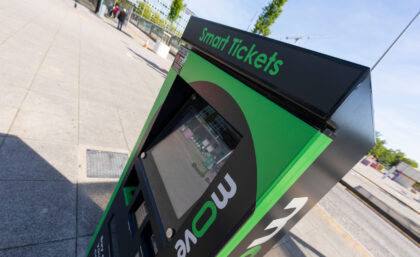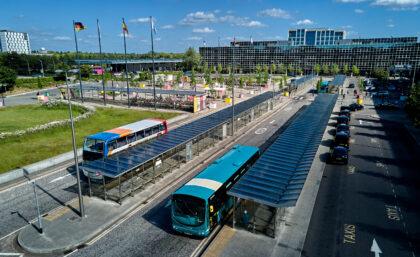MK:Smart – A Smart City Collaboration
Great article by Chris Bruce, Director BT Global Services describing Milton Keynes MK:Smart Programme and it’s Internet of Things (IOT) initiatives.
Milton Keynes is one of the fastest growing cities in the UK. Joining forces with The Open University, Connected Digital Economy Catapult, Future Cities Catapult, and other partners, Milton Keynes Council formed a Smart City collaboration – MK:Smart.
Half way through it’s 3 year initiative MK:Smart rises to the challenges of supporting sustainable growth and whilst meeting key carbon reduction targets by deploying wireless based solutions to collect data from sensors improving the quality of life for its citizens – ie. using the Internet of Things to enable a smarter city.
Geoff Snelson, Director of Strategy, Milton Keynes Council states,
“Overall the MK Smart initiative is forecast to make 50 per cent less traffic congestion and reduced fuel use and vehicle emissions. Smart parking will contribute significantly to that latter area.”
Chris Bruce comments,
“Innovative wireless technologies are used to beam the sensors’ data to receivers on lampposts, and that information is then analysed in the central MK Data Hub, which is currently hosted by BT. The prize from full deployment is estimated to be a capital saving of at least £105m, with reduced fuel use and vehicle emissions. MK has 25,000 parking bays but at any one time 7,000 are empty. It costs around £15,000 to create a new parking bay”.
Smart Parking are proud to be part of the MK:Smart vision. In February 2015, we announced the launch of Smart Parking’s SmartPark solution in Milton Keynes with the installation of 300 SmartEye sensors in the city’s B4-1 Car Park on South Second Street.
The deployment allows car park users to enter the barrier less car park, pay and walk away with no need to return to their vehicle to display a ticket. Users can also download the SmartApp smart phone guidance application to search for parking availability in real-time.
Parking made easier
Since the launch the technology has encouraged drivers to use limited parking spaces more effectively and provided the council with the information to better understand how those spaces are being used. The success of Phase I has led to Milton Keynes Council expanding the trial with the implementation of a further 200 sensors.
The main requirements of this project are driven by the Council’s greater need to monitor usage, increase the use of under-utilised bays and to provide accurate real-time parking occupancy to drivers in key on-street locations ultimately reducing the level of fuel used and vehicle emissions.
Councillor Matt Clifton, Cabinet Member responsible for Transport Strategy in Milton Keynes, said: “It is great that Milton Keynes is expanding its sensor network for parking – and the extra 200 sensors will make it easier for employees to park in CMK. This confirms that MK is becoming Britain’s leading Smart City.”


